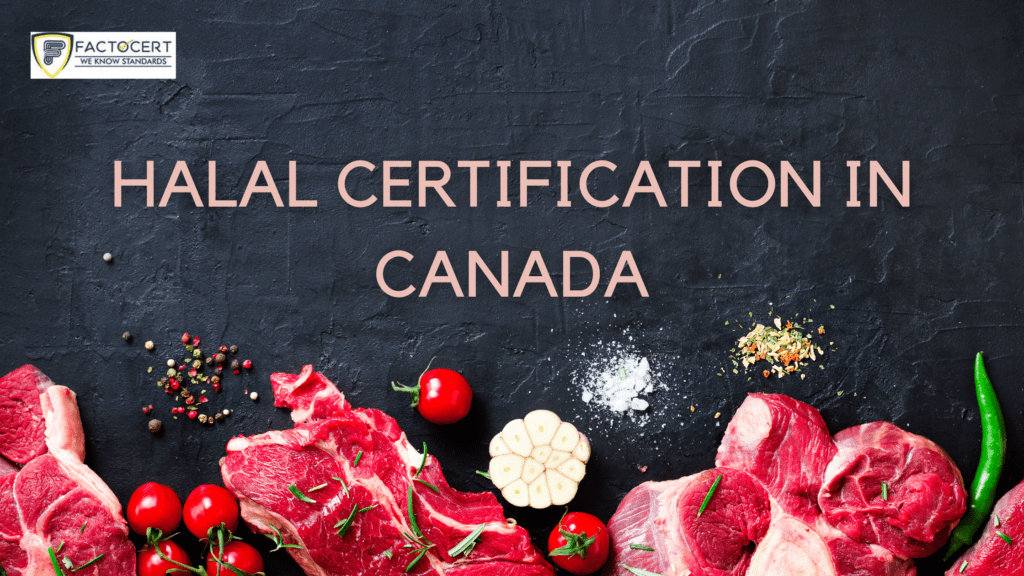Investing in HALAL Certification in Canada is essential if you want to sell your products and services in a market that is increasing its demand for halal goods and services. This is due to demographic changes and the increasing global demand for halal products and services.
Cost of halal certification in Canada
Getting a halal certification in Canada can open the doors to several market opportunities. It can also help a brand or product achieve its full potential overseas.
The halal food market in Canada is estimated to be worth over $1 billion, and it’s expected to grow significantly over the next few years. Whether you’re a producer or distributor, obtaining halal certification in Canada is a great way to boost your business.
You’ll need to get Halal certification from your local health food store. Instead, you’ll need to do it if you want to make the most of your product’s potential in the Muslim marketplace.
Canada’s halal food and beverage industry is estimated to reach $2.6 billion in a few years. The market is set to expand in the coming years due to the growth of the Canadian Muslim population. In addition, the government believes that the sector is a viable one.
You’ll need to find a reputable certification organisation to ensure that your halal products are up to par. If you’re looking for halal certification in Toronto, you can’t go wrong with Factocert.
Changing demographics and increasing global demand for halal products
Changing demographics and increasing global demand for halal products in Canada is a massive opportunity for companies to develop new products and expand their current halal range. Canada still needs to become an essential halal market compared to the Middle East. Still, its reputation for quality agri-foods makes it a good target for a global halal business.
Despite the relatively small size of the Canadian Muslim population, the number is expected to increase by 6.6% by 2030. This is a significant growth rate and will drive market indicators up. In 2010, Canada’s agri-food exports to key halal markets exceeded $3 billion. Investing in halal value-add products and developing retail networks will help Canadian companies break into the global halal market.
Increasing per capita incomes in regions with a large Muslim population have led to increased demand for halal food and convenience products. This trend is likely to continue over the forecast period.
Non-Muslim consumers are also looking for a variety of halal products. In addition, European consumers are bringing a new demand for safer food. As a result, more food companies ramp up their halal investment.
Selling your halal products in the buying market.
Increasing consumer awareness of the benefits of halal products and increasing demand for processed convenience foods has given rise to new subsectors of the food industry. These include dairy, meat, poultry, and seafood.
A booming e-commerce industry has created easy accessibility to halal-certified food products. These products are increasingly being marketed in mainstream markets.
The growing Muslim population is the first target for marketers. However, the rest of the population is still resistant to halal food.
Manufacturers are also expanding their product portfolio to accommodate a broader consumer base. For instance, global brand H&M launched a line of halal clothing. These types of products will perform very well in this market.
The food industry is also changing due to changes in the lifestyle of consumers. This has led to the development of halal versions of traditional snacks. These are typically available in food stalls and restaurants.
Non-Muslim consumers are consuming halal products for ethical reasons. This is one of the biggest reasons for the growth of the halal industry. Several Islamic and non-Islamic countries are adopting stringent regulatory frameworks to ensure that their products meet globally accepted standards.
Selling your halal products in the 21st century.
Those who sell their halal products in the 21st century must move with a sense of caution. Halal is an ethos that has been shaped by political contestation. Its implications are complex and extend beyond the boundaries of religious practice. It is a social science concept with consequences on community and civic life.
It is also an economic question. The state stands to profit from the sale of Halal meat. The nexus of Halal is constructed through a dialectical rapport between the spiritual capital of Islam and the industrial capital of capitalism.
The nexus of Halal is a multi-tiered marketplace whose internal logic is opaque. It is a transgressive context where boundaries between inside and outside are reconstructed. In this sense, it is a postmodern quest for authenticity.
In addition to its role as a code, Halal also has the effect of redefining religion. Halal requires believers to hone their psyches. They are trained to purge the secular world. As such, Halal is a form of dietary apartheid.





